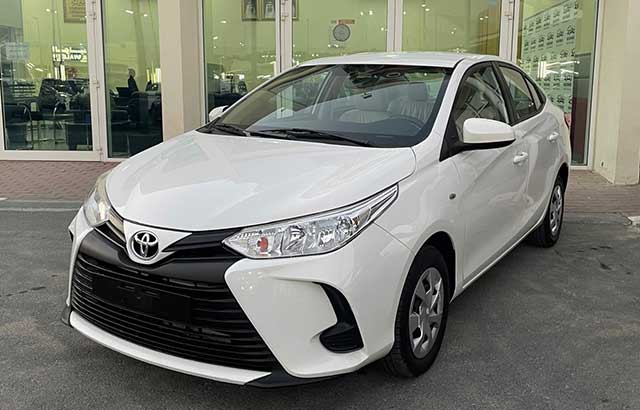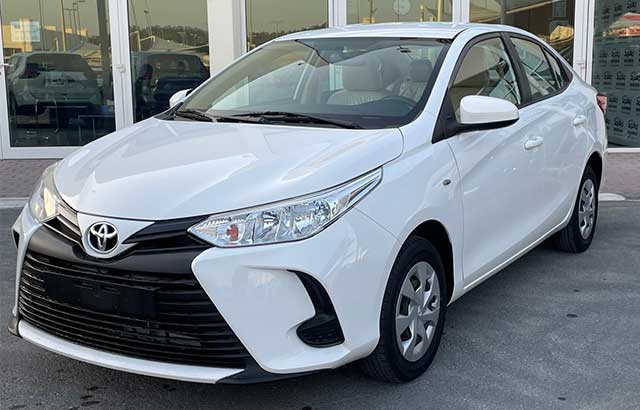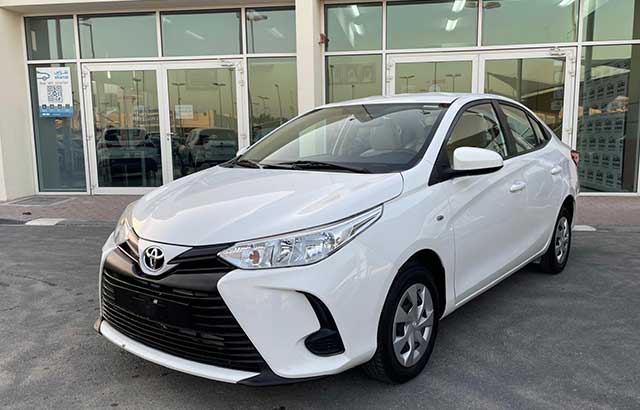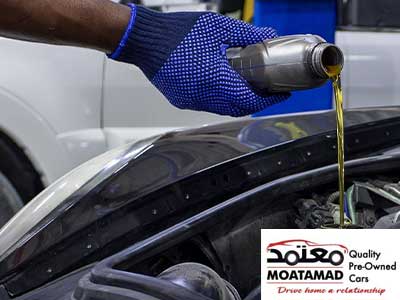Quality Cars, Unbeatable Deals
Quality Cars, Unbeatable Deals
CARS MAKES AND MODELS
Find Your Best Vehicles
WHO ARE WE ?
Moatamad in the Arabic language means Approved / Recommended / Preferred.
Moatamad is the brand name for the Pre-owned car business of Remal Al Khaleej Used Cars Trading. With operations in KSA, Oman and UAE, Moatamad is amongst the fastest growing brand in the Pre–owned cars industry.
Moatamad is an allied business of Bahwan International Group, which is a reputed entity with over 45 associate companies and more than 2000 employees with presence across the Sultanate of Oman, the Gulf Region, North Africa, and South Asia. These groups of companies represent an impressive portfolio of more than 40 global brands. Their diversified businesses cover a wide spectrum, including automobiles, healthcare, agriculture, renewable energy, airport solutions, logistic solutions, earthmoving equipment, construction equipment, industrial equipment, debt collection services, high-end security solutions, survey instruments, elevators and parking solutions, which are some of the major businesses among others.
KNOW MORE

CLEAR YOUR DOUBTS
FAQs
Moatamadcars owns every car we sell and all the cars on our website are physically located at one of our Moatamadcars stores
The cars we sell come from our current customers in the UAE region. This includes people who trade-in their car when buying another high-quality used car from us. Others come from businesses, government institutions, and business fleet owners that want to sell and upgrade their cars.
All Cars in our inventory must pass a 101-point inspection and undergo a detailed reconditioning to be sold at Moatamadcars. Choosing a used car from our extensive stock offers you greater peace of mind.
Every car we sell is Moatamadcars Certified, which means that the car has passed our 101-point inspection and undergone a detailed reconditioning process. Our 101-point inspection includes checking on various parameters which includes engine components and associated systems for proper operation.
Yes. Cars we sell, comes with a 12-month / 20,000-kilometer comprehensive warranty* (whichever comes first) from the date of delivery. *Terms and conditions apply.
Moatamadcars does not buy a car which has structural damages that effect the performance of a car. However Small scratches and dents are unavoidable, and sometimes a respray is the only way to return a car to showroom condition before we put it on sale.
Yes. You deserve to have total confidence in your decision before you purchase a car. Unless otherwise noted, every car you see online is located at a Moatamadcars store and can be seen in person and test driven prior to buying.
We don’t offer refunds on vehicle deposits, but you can transfer the payment to another one of our cars within six months of the deposit being paid.
This charge is to compensate for the overhead cost of the entire transaction and any monetary loss that occurred during the booking.
However, if in case the finance company rejects your loan proposal sourced through us the entire booking amount will be refunded.
Prices of all cars displayed on the website are valid through the listed date. However, prices are subject to change, based upon current market conditions. These changes will not affect you if you have reserved a car.
Yes! Behind our website is a team of real people. Give them a call on +971 600-562621 during our opening hours.
Sunday to Saturday 9 am to 6:30 pm (Friday National Holiday)
Your used car can be reserved with a small deposit that's displayed in the description of every car. The easiest way to pay is on the website by credit or debit card.
To buy a car from us, you will need a copy of your valid UAE driving license; Valid 3 months bank statement, Valid salary certificate, Valid Passport copy & visa copy and Valid emirates id copy.Additional documentation may also be required. Please contact Moatamadcars sales consultant for a full list of documents
Why Choose Us ?
1
101 Point
Inspection

2
Vehicle
Warranty*

3
150 + Models
In Stock

4
Vehicle
Service

5
Certified
Car-Rating

6
Finance
Available

Latest News
Testimonials

2 weeks ago,we didn't even know that a company like Moatamadcars existed. Today I will say , it is the only company that deals with pre-owned cars. The car,the service and everything is 10 star for us. Thank you Randeep for going that extra mile in assisting in getting the best car for us which met our current requirements.
Verodiana Mohan

Buying a car from Moatamadcars was a wonderful experience. The staff was friendly and accommodating, making the whole process stress-free. They have a great selection of quality used cars. I’m really happy with my new vehicle Nissan kicks model 2020 and the exceptional service I received.
fazil moothodath

Bought a Nissan Sunny from Moatamadcars, and the service was exceptional. They had vast experience in cars and answered any queries and concerns I had very promptly. Their customer service was wonderful, and the prices were very reasonable and attractive, and offered many benefits like warranty, window tinting.
Sahithya

I had a great experience at Moatamad Used Cars! The staff was friendly and helped me find the perfect Nissan Sentra. The selection was impressive, and my car is in excellent condition. Highly recommend this dealer for anyone looking for a used car!
rose peeter

I recently purchased a 2019 Toyota Yaris from Moatamad Used Cars in Sharjah Souq Al Haraj, and I am very happy for the selection. The team was incredibly helpful and knowledgeable, making the buying process smooth. The car is in excellent condition, and I got a great deal, car came with 1 year full warranty.
Sayooj M Vadakiniyil

Highly recommend Moatamad Cars for anyone looking for a used vehicle! My Nissan X-Trail is perfect, and the customer service was exceptional. Will definitely return for future purchases!" Mr. Randeep from sales assisted thru bank loan and other process.
AKHIL ARYADEVI

I recently purchased Hyundai accent through Moatamad Cars. I had a very good experience from the sales team I would strongly recommend and advises to approach MOATAMAD USED CARS. They arranged bank loan & best insurance package, also I got 1year full warranty. My overall experience was very positive.
Shahir Shahadaf

I am happy with the service from Moatamad cars. The place was very nice, staff is very friendly and they helped me a lot in finishing all the bank and registration process. They are offering a full 1year warranty which I liked a lot. They went out the way in getting me the car at the earliest.
MUHAMMAD SOHAIL KHALID

2 weeks ago,we didn't even know that a company like Moatamadcars existed. Today I will say , it is the only company that deals with pre-owned cars. The car,the service and everything is 10 star for us. Thank you Randeep for going that extra mile in assisting in getting the best car for us which met our current requirements.
Verodiana Mohan

Buying a car from Moatamadcars was a wonderful experience. The staff was friendly and accommodating, making the whole process stress-free. They have a great selection of quality used cars. I’m really happy with my new vehicle Nissan kicks model 2020 and the exceptional service I received.
fazil moothodath

Bought a Nissan Sunny from Moatamadcars, and the service was exceptional. They had vast experience in cars and answered any queries and concerns I had very promptly. Their customer service was wonderful, and the prices were very reasonable and attractive, and offered many benefits like warranty, window tinting.
Sahithya

I had a great experience at Moatamad Used Cars! The staff was friendly and helped me find the perfect Nissan Sentra. The selection was impressive, and my car is in excellent condition. Highly recommend this dealer for anyone looking for a used car!
rose peeter

I recently purchased a 2019 Toyota Yaris from Moatamad Used Cars in Sharjah Souq Al Haraj, and I am very happy for the selection. The team was incredibly helpful and knowledgeable, making the buying process smooth. The car is in excellent condition, and I got a great deal, car came with 1 year full warranty.
Sayooj M Vadakiniyil

Highly recommend Moatamad Cars for anyone looking for a used vehicle! My Nissan X-Trail is perfect, and the customer service was exceptional. Will definitely return for future purchases!" Mr. Randeep from sales assisted thru bank loan and other process.
AKHIL ARYADEVI

I recently purchased Hyundai accent through Moatamad Cars. I had a very good experience from the sales team I would strongly recommend and advises to approach MOATAMAD USED CARS. They arranged bank loan & best insurance package, also I got 1year full warranty. My overall experience was very positive.
Shahir Shahadaf

I am happy with the service from Moatamad cars. The place was very nice, staff is very friendly and they helped me a lot in finishing all the bank and registration process. They are offering a full 1year warranty which I liked a lot. They went out the way in getting me the car at the earliest.
MUHAMMAD SOHAIL KHALID






































.png)











